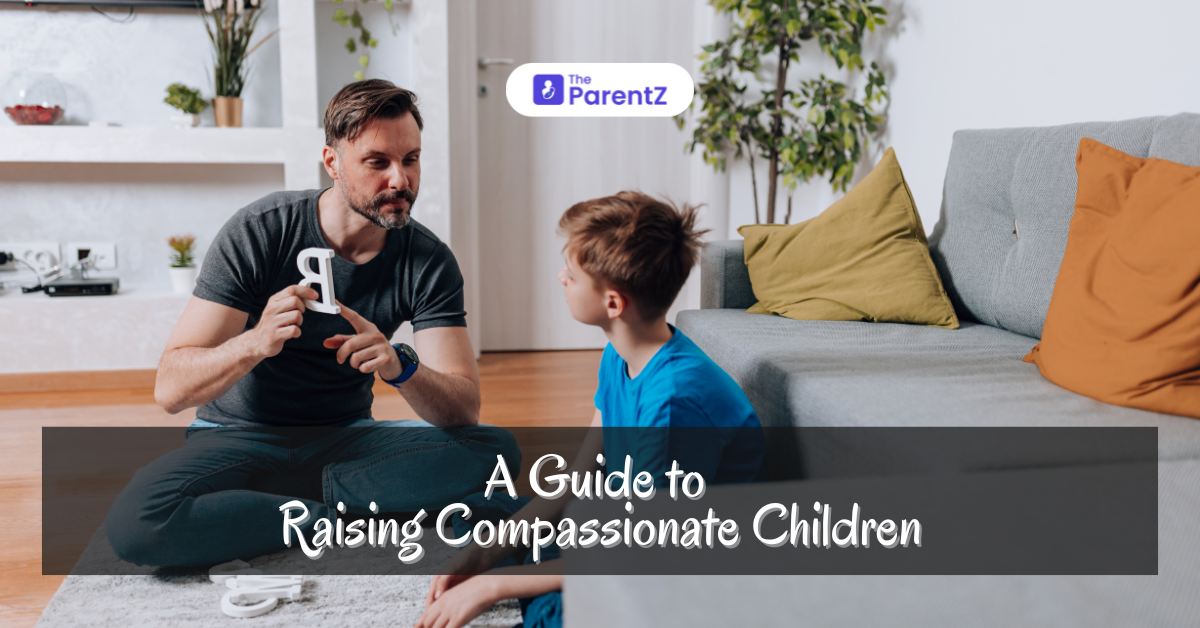Growing up friendly and compassionate is more crucial than ever in a world that sometimes feels cruel and cutthroat. However, compassion starts with a foundation of self-love and understanding it is not just about actions. This blog post will examine the connections between kindness toward others and self-compassion while providing helpful advice and suggestions for parents traveling this path.
The Significance of Kindness
Being kind goes beyond simply being polite. It’s a way of thinking about how to treat people and yourself with kindness, compassion, and a willingness to lend a hand. Positive psychology research demonstrates that kindness has many advantages, such as:
- Better mental health: reduced levels of stress, anxiety, and depression have been associated with self-compassion and kindness toward others.
- Better connections: Empathy is cultivated by kindness, and empathy enables us to form more profound, more meaningful connections with people.
- Increased resilience: We can better withstand setbacks and overcome obstacles when we are compassionate to ourselves.
- A better, more optimistic world: When compassion spreads widely, it can benefit all.
Kindness Begins with Self-Love
Children who are taught to be kind and understanding toward themselves will naturally show the same compassion for others. Here are some strategies to help your kids learn to love who they are:
- Exemplify Self-Compassion: Kids learn from watching the adults in their environment. Take care of how you talk to yourself, try not to be too critical of yourself, and acknowledge your successes.
- Emphasize Effort Rather than Perfection: Help your child realize that errors are an inevitable part of learning. Urge them to stop concentrating on their flaws and instead concentrate on their effort and progress.
- Make Your Child’s Emotions Safe: Instill the belief that all feelings are legitimate in them. Give them tools for healthy self-expression and acknowledge their feelings.
Spreading the Seeds of Goodwill
Once you have a solid foundation of self-love, you can start cultivating kindness toward others. The following are some suggestions:
- Begin with Small Acts: Promote compassion in daily interactions by offering to assist with household chores, holding doors open for others, or sending thank-you notes.
- Read Kindness-Themed Children’s Books: Books for young readers that emphasize empathy and compassion can lead to meaningful discussions and motivate kindness deeds.
- Do Community Service: By working together, volunteers help kids understand the good things they can do for others.
Play role-playing scenarios to practice responding empathetically and kindly to challenging circumstances. Children who do this will grow more confident in their ability to defend others and themselves.
Kindness as a Family Journey
We All Need to Grow. Remember that raising kind adults begins with raising kind children. Be prepared to assess your actions and adjust as needed.
- Accept Self-Compassion: Show yourself the same consideration that you give to others. Embrace opportunities to forgive yourself and others. Practice forgiving others. Let go of grudges.
- Set an Example for Your Children: They always observe and absorb your lessons. Try to set an excellent example of kindness in all of your interactions by being aware of the words and deeds you do.
Conclusion
The journey of cultivating kindness is a lifelong one. By fostering empathy and self-love in our kids from an early age, we can equip them to grow up to be kind people who make the world a better place. Remember that kindness spreads easily, so let’s do our part to share it!








Be the first one to comment on this story.